To kids who won’t grow up witnessing the Mamba Mentality,
I was in church this past Sunday when I started getting all these text messages. People were blowing up my phone asking, “Shay, are you OK?”
I responded to one friend, “What do you mean am I OK? What happened?”
That’s how I found out the news. Immediately, I started balling crying.
That emotion took me right back to October 27th, 1996. At the time, I was only 12 years old. That day my whole life changed. That was the day my father died in a car accident.
My dad and I were like Siamese twins. If he did push-ups, I tried to do push-ups. He would wear high white socks. So, I wore high white socks. My dad put hot sauce on his noodles. Even though it was hot, I put hot sauce on my noodles. I was such a daddy’s girl.
I remember when my mom got the phone call. When she hung up, for some reason, I already knew what happened. I just knew that my dad was dead.
Enter Your Email to Unseal Premium Content
When she told me, “Daddy’s gone. He’s not coming back,” I ran for the balcony.
I thought my life was over and wanted to jump, but my mom and my aunt held me back.
The months following my dad’s death, I misbehaved in school, acting out and getting into fights. They sent me to a youth therapist, who suggested I get involved with organized sports to keep me distracted and allow me to have a few hours a day where I wasn’t grieving the loss of my dad.
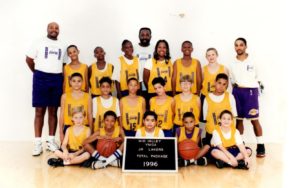

One day, I was playing outside and saw kids wearing these reversible jerseys, gold on the outside and purple on the inside. They told me they were going to play basketball at the YMCA. I didn’t even know what basketball was, but I knew I wanted to play too.
My mom signed me up and a few months later, Lakers rookies Derek Fisher and Kobe Bryant visited our YMCA and spoke to us. I remember I gave Derek Fisher a high five, but for some reason with Kobe, I went in for a hug. Both players made me feel special and told me to have fun, which was important for me because at that point I wasn’t very good at basketball. They made me feel like it was OK to keep coming back to the gym as long as I was enjoying myself.
After their visit, I found myself influenced by Kobe in a similar way my dad influenced me. Kobe wore baggy clothes, so I wanted to wear baggy clothes. Kobe drank Sprite, so I wanted to drink Sprite.
I started to follow the Lakers and Kobe’s career. He was coming off the bench his rookie year and then he hit this big shot, which helped him to get more time on the court. He was playing better than a rookie should play, outworking veterans and showing us the Kobe we would come to know. It made me realize that even though I started playing basketball later than most kids, I could still catch on. Even though I didn’t know the game as well as the other kids did, I could learn.
I started to put in the time and I got better. AAU teams, which are travel basketball teams, wanted me. First, I played with a small AAU team and then I got recruited to play with one of the best AAU teams in the area. We went to Nike camps and got a ton of exposure, which led to my brother and I going to a $25,000-a-year prep school for free.
As my game progressed, so did Kobe’s career. His work ethic was second to none, preparing, competing and being consistent. Kobe was never afraid to take the last shot because he knew he worked harder than anybody else. That work ethic and his fierce mentality became known as the Mamba Mentality. The Black Mamba was Kobe’s self-proclaimed nickname.
Kobe was never afraid to take the last shot because he knew he worked harder than anybody else.
Still, with a desire to be just like him, I started to call myself Kobe-A or Kobe’s little sister. I was always in the gym. Between classes in high school, I would run to get a quick layup. After school, I would practice. And at 10:00 pm, I would take the bus and climb the fence, because there were lights outside and I would shoot and shoot and shoot. Consequently, I averaged 32 points and 19 rebounds in high school.
In my junior year, for the first time in school history, we made it to the CIF championship. On the day of the game, I was hospitalized with kidney stones.
The doctors told me, “You are not going to be able to play.”
But I knew if it were Kobe, he would at least try. So, I left the hospital. I played and we won.
It was then I realized strength doesn’t come from knowing what you can achieve. It comes from achieving goals you didn’t even know you could.
I received more than 300 scholarship offers to play in college, including top programs like UConn and Stanford, but I decided on University of Southern California (USC) because my mom wanted me to stay close to home.
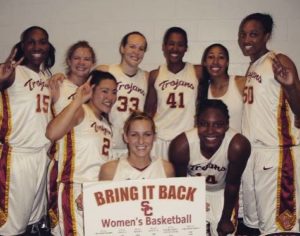

At USC, I had some bright moments during my freshman year, but my sophomore we made it to the NCAA tournament for the first time since the ’90s. We ended up losing in the second round to Michigan State by point three seconds. I had a good game, but the pain of that loss triggered that Mamba Mentality in me all over again.
We flew back to L.A. after that game and the next day, I was on a treadmill at six in the morning working out. That summer, I trained with the USC football team with guys like Reggie Bush and Matt Leinart. I lost 18 pounds and then I became a two-time All-American before being drafted into the WNBA, where I won a WNBA championship with Phoenix. Now, I am 34 years old and still pursuing a professional basketball career.
Kobe taught me sacrifice and preparation. He showed me how to be a fierce competitor, not against other people, but myself. The Mamba Mentality is not a moment of success but a lifestyle of consistent hard work.
Whatever hurt me in my life, didn’t stop me in life because of the lessons I learned from Kobe.
My dad never got to see me play, but Kobe did. He came to a WNBA game with his late daughter Gigi. I was in such awe that I missed a free throw because I was staring right at him.
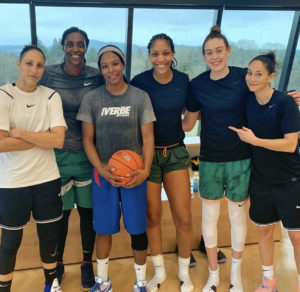

It was a surreal moment for me because when I lost my dad, I found Kobe, who helped me become the person I am today.
This past Sunday, after my friend texted me at church and said, “Kobe died,” my emotions and my anxiety overflowed.
Kobe was the same age as my Dad, 41, when he died, which was even more reason that the pain reminded me of my 12-year-old self. Even so, I am not the same little girl who lost her father. I now know blocking emotions isn’t the same as letting them go, and I will appropriately process my sadness over this loss. Then, I will get back to work.
See, what the Mamba Mentality taught me and what I so desperately want to convey to all of you is that when life gets hard, it doesn’t end like I thought when I was 12 years old. Instead, tough moments are where our fight begins.
Always keep pushing.
The Mamba may be out, but let’s keep his mentality within us all.
Go find your greatness,
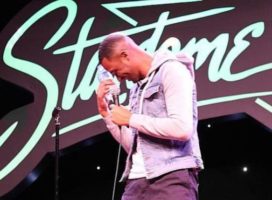
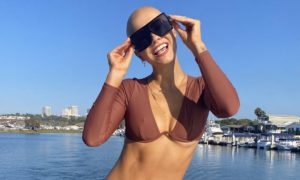
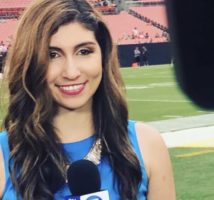
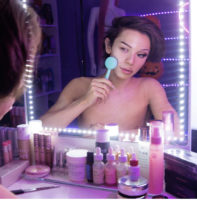
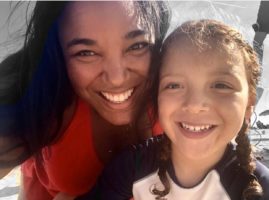
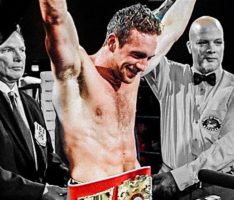
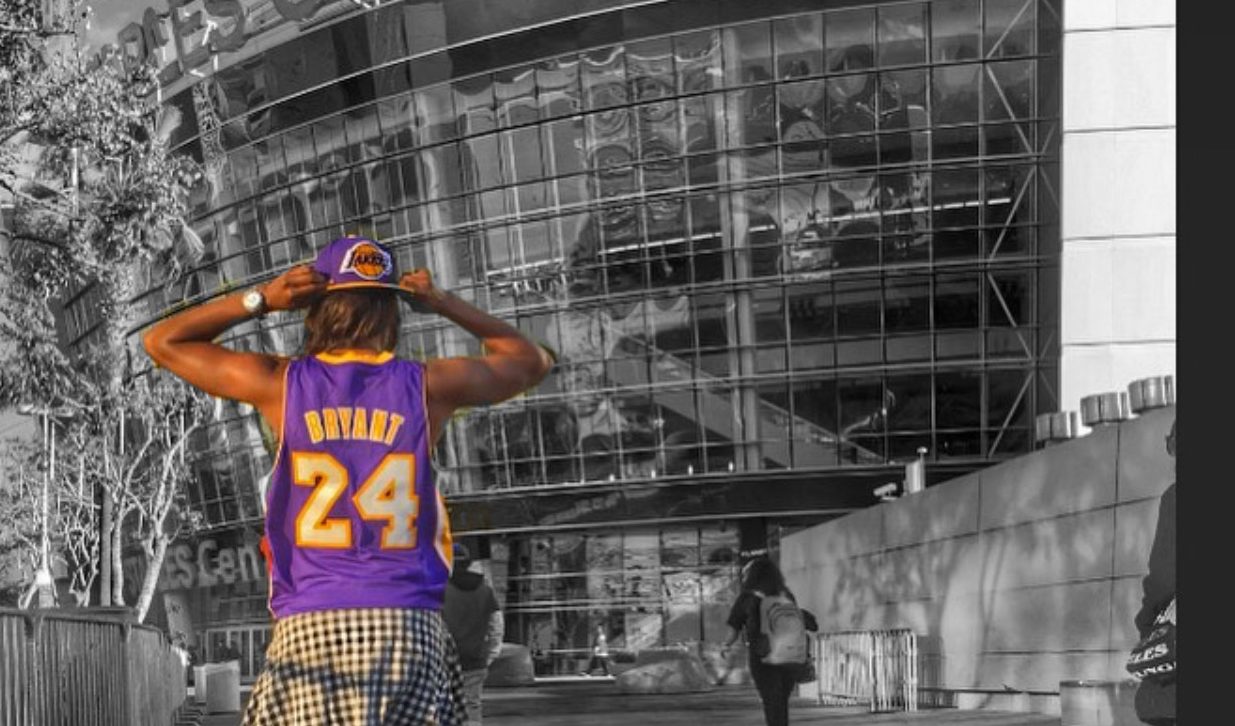

Wow. What a truly moving and powerful story. We often take for granted the small gifts we give each other just by being present. I’m sad for the heartache. I’m glad you stayed and became. Who knows what little girl or boy will be attributing their life’s purpose to some kindness you shared. Peace and Sunshine
She played a game after leaving the hospital with kidney stones?!?!?! That is some impressive will power. Thank you for sharing your story of loss, inspiration and overcoming it all to achieve a great basketball career and balance in life off the court.